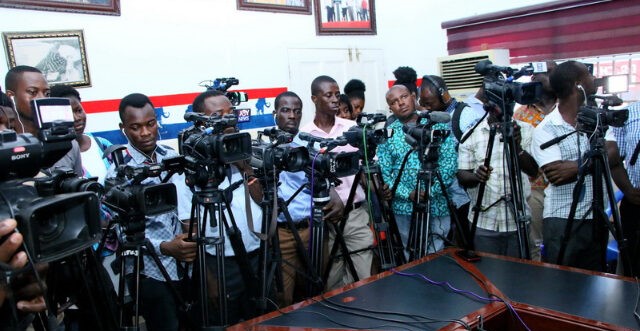Local media outlets in Ghana are facing serious financial challenges due to the COVID-19 pandemic, the state of the local economy, and the fast pace of technological advancements, according to a recent report by the University of Ghana Department of Communication titled “The State of the Ghanaian Media Report”.
According to the report, while there are some signs of healthy financial potential, there are equally pressing challenges to viability. However, it says the media is not helpless and is actively seeking innovative revenue strategies to overcome these challenges. The report highlights four key strategies that are being employed to augment revenue derived from non-advertising sources, including content innovations, digitization, diversification, and innovative solicitation.
“This study shows that the financial health of the local media is patchy, at best. While there are clear signs of healthy indicators of financial potential, there are equally pressing challenges to viability. Factors situated within the structure of the local media scene, the COVID-19 pandemic, the state of the local economy and the fast pace of technological evolutions both hurt the financial health of the media in Ghana.” Says the report.
One media outlet, a local newspaper, has already implemented these strategies to overcome its financial difficulties. The newspaper has hired new writers and journalists to create more engaging content, digitized its archives, and offered online subscriptions to its readers. To diversify its revenue streams, the newspaper has started organizing events and conferences, creating new digital products, and accepting donations and sponsorships from local businesses.
The report’s findings suggest that media outlets in Ghana are actively diversifying their revenue streams and seeking new ways to generate income. This is an encouraging trend for the media industry, as it shows a willingness to adapt and evolve in the face of challenges.
“As the media actively innovate revenue strategies, it portends good tidings by expanding their income streams. Yet, the benefits of these creative revenue strategies are hampered by the intense saturation in the broadcasting space. Given the size of the troubled Ghanaian economy and the implications for advertising budgets, there is just too little advertising money to go around. This has the potential to increase the risk of media capture and its attendant unprofessional practices.”
The report also provided recommendations for various stakeholders on how to make the media financially viable. Media development organizations were urged to prioritize capacity building to enable media organizations, especially smaller, rural-based ones, to diversify their revenue sources and strategies. They were also advised to provide training for media managers to introduce efficient work systems and processes to cut costs.
The report also recommended that the government and regulators provide systemic development support to the sector, including tax breaks for retooling and employment and tax incentives for focusing on certain content foci. Regulators were also urged to introduce sustainability plans as part of licensing requirements for media organizations seeking to license. In addition, the report recommended that the government engage global tech giants such as Facebook, YouTube, and Instagram to contribute some of their revenues to support the local media.
Media organizations were encouraged to innovate new revenue strategies, maintain high editorial standards, and guard their credibility to ensure viable media.
–
Story by ; Gideon Nicholas Day | univers.ug.edu.gh




